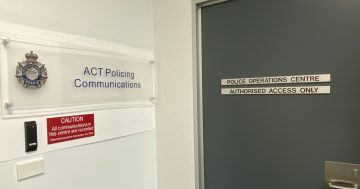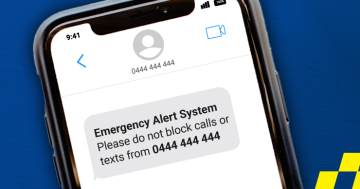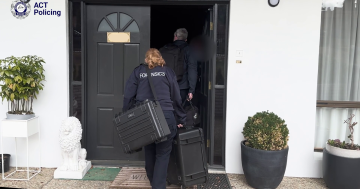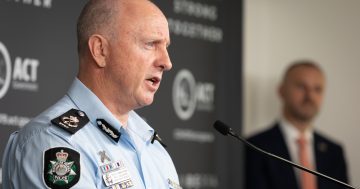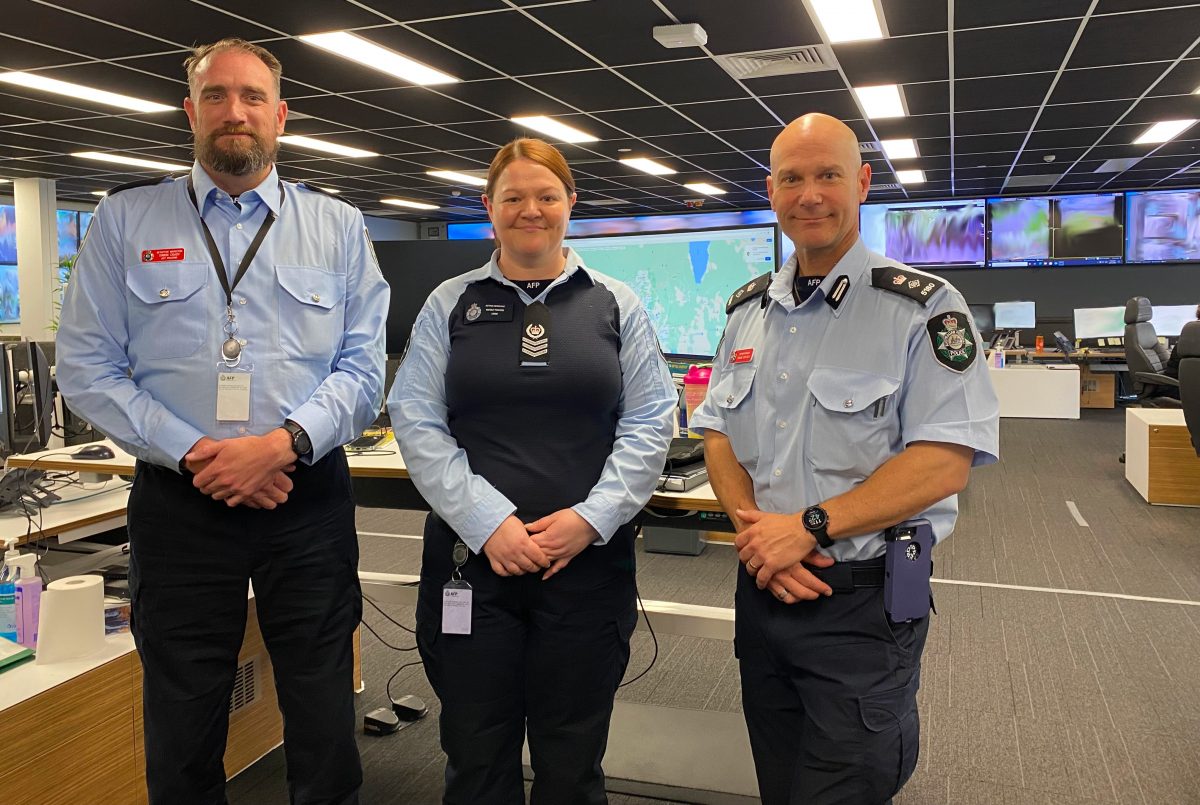
OIC of Communications Detective Inspector Simon Coady with Duty Operations Manager Acting Sergeant Nicole Towers and Communications Superintendent Brian Diplock. Photo: Claire Fenwicke.
It’s a job where every second counts, and it’s one conducted on the end of a phone line.
If you call Triple Zero (000) and ask for police, or the Police Assistance line (131 444), your call will be sent to the team inside Winchester Police Station.
They’ll speak to you while feeding critical information to patrol cars on their way to the scene.
Officer in Charge of Communications, Detective Inspector Simon Coady, said everything went through his team before resources were deployed on the ground.
“They have no way of knowing what’s on the line as they pick it up,” he said.
“You can go from grandma calling up because a gnome in her front garden was knocked over, and the next providing life-saving advice.”
People call for all reasons – to abuse staff, complain about cold Chinese takeaway or for matters of life and death.
For serious issues, operators listen to the person who’s calling and what’s happening in the background to send up-to-date information to patrol cars.
The first crucial piece of information is location.
While mobile tower details and landline addresses are helpful, it isn’t as accurate as getting a physical address from someone at the scene.
The team will also research past incidents at the same address or number to help officers decide how to react when they arrive.
“For example, if it’s a domestic violence incident, if we know a person is anti-police we might send two patrols instead of one,” Det. Insp. Coady said. “One team to help control the person and another to look after the victim.”
Getting up-to-date information as the situation changes is also crucial to determine what priority a job is initially given. This can then be updated.
Priority 1 and 2 jobs are classed as “urgent” while 3, 4 and 5 are routine matters. This also determines how soon a police resource can be allocated to a job, and how officers drive to the scene.
“If a calls says a situation is escalating, a weapon has been produced, that all matters, and seconds make a difference in those moments,” Det. Insp. Coady said.
“Every moment we’re not there is a moment we can’t help someone.”
The time it takes for your call to be connected depends on how many other calls are coming in. Calls to Triple Zero are prioritised over 131 444.
About 3000 calls are made to ACT’s Triple Zero line each month on average, and it’s on track to reach 40,000 calls this year. Unfortunately, about 700 calls each month aren’t police matters.
“We have to respond to life-threatening incidents first,” Det. Insp. Coady said.
“We also have to make decisions to make sure resources are still available if an emergency does happen.
“We do not have the resources to attend incidents that don’t warrant an immediate response.”
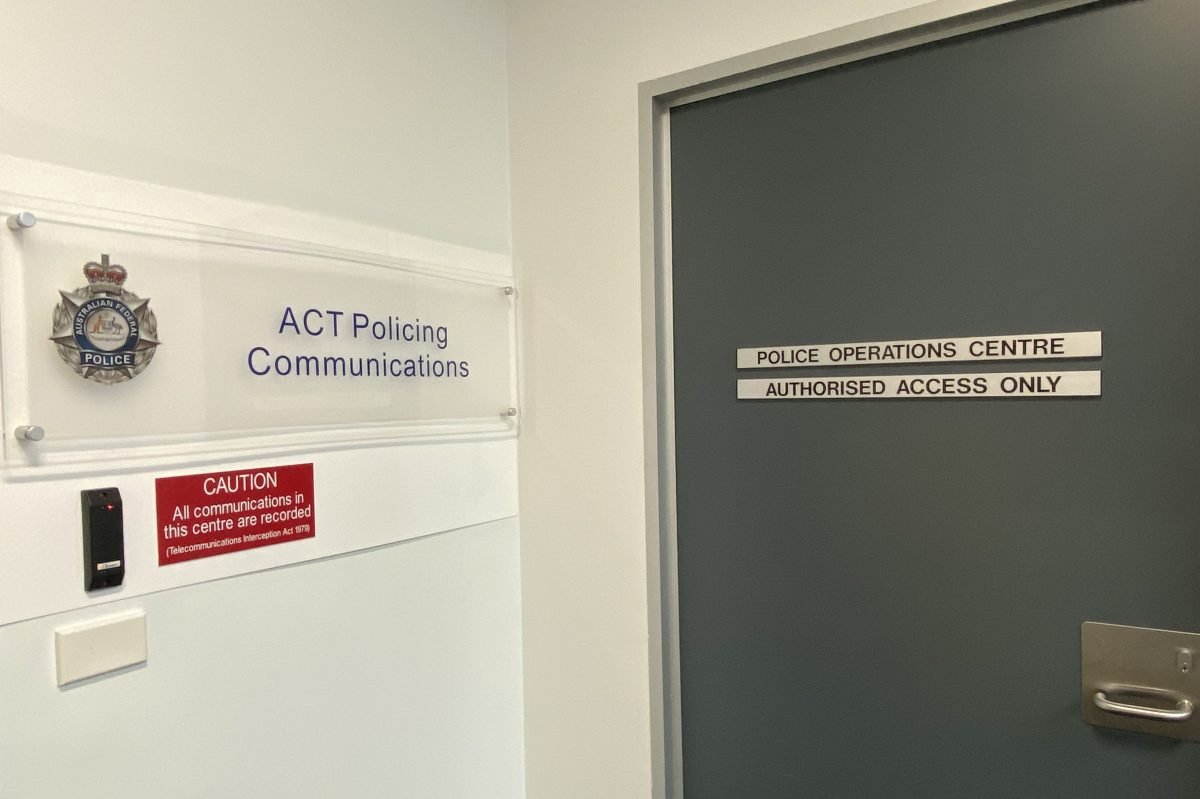
Whether you call Triple Zero (000) or the Police Assistance Line (131 444), it will be answered here. Photo: Claire Fenwicke.
Det. Insp. Coady said incidents could change in a heartbeat, so you should never hesitate about picking up the phone in a potential emergency situation.
The Triple Zero line is for emergencies happening now; 131 444 is for non-life threatening or non-time critical crimes.
And if you accidentally call the wrong number, you won’t be in trouble.
“If you’re genuinely not sure if it’s an emergency, call us,” he said. “If it turns out it’s not an emergency, we’ll manage it at the time. You won’t be yelled at or told off.”
The communications workforce is almost entirely made up of unsworn members, except for those overseeing its operation.
Those who pass the recruitment process, which includes psychometric testing, receive six weeks’ training before picking up a phone line.
Det. Insp. Coady said the role was also a great way to see what else was on offer in policing.
“It’s a strong feeder to other areas, particularly our sworn areas.”
At the end of the day, it comes down to wanting to help someone in need.
“The team does an amazing job in the most arduous circumstances,” he said.
“People are calling us on their worst days … but we do it because we want to help and make a difference to the community.”












